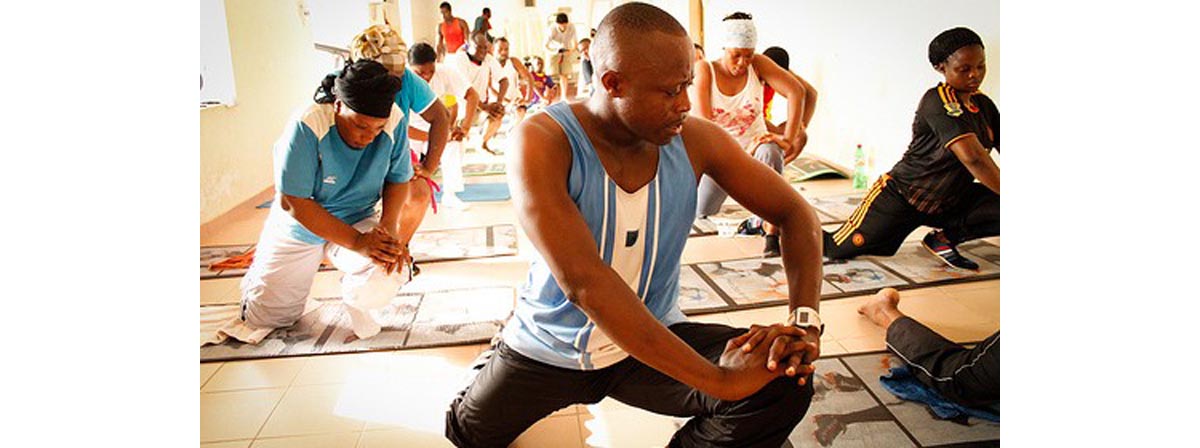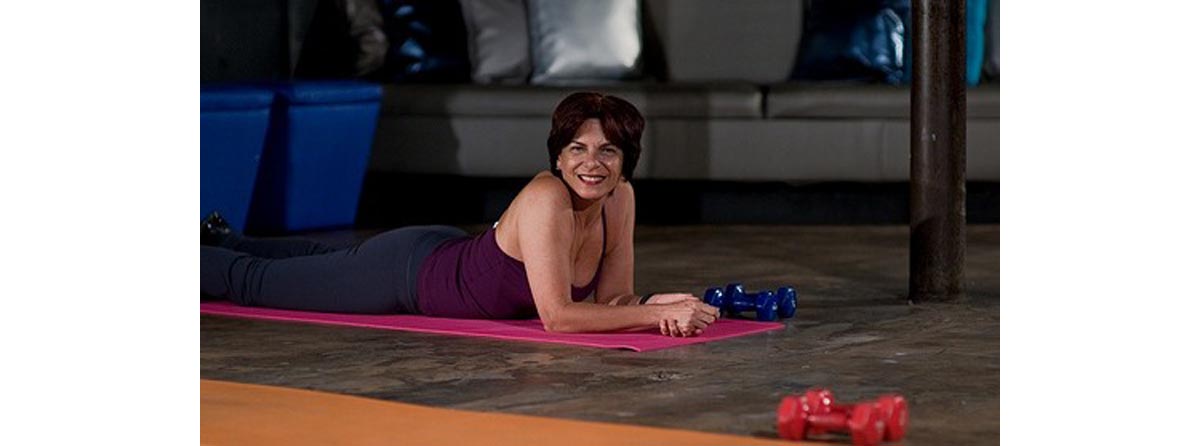Most people exercise to look better. Whether you want to lose fat, increase definition, fit in your favorite designer clothes, look the part at a big event, or are on the trail of big bulging muscles, the main reason the majority of folks have for training is to look good.

There’s no shame in this – first opinions count, and if you feel happier and more confident in a slimmer, buffer body, that’s great. But one of the main, and often overlooked benefits of exercise is its ability to prevent disease.
The study, led by cardiologist Dr. Susan Lakoski of the University of Vermont, who specializes in fitness and its effect on disease found that men who were most fit at age 50 back in the 1970s had a much lower incidence of lung and colon cancer 20 to 25 years later. Among those men who did develop lung or colon cancer, the men who had greater fitness levels were far less likely to die from it.
The study was extremely comprehensive, examining over 17,000 men.
Participants took a treadmill test to assess their fitness levels, and each subject was tested to see how efficient they were at producing energy. This was done by measuring their metabolic equivalent of task, or METs. One MET is around the same amount of energy as it takes just to sit down and do nothing. An average middle aged man walking at a brisk pace on an incline can get up to around 9 METs, athletes can get to 15 METs or so, while elite triathletes can achieve up to 20 METs. Basically the higher the MET score, the fitter you are.
Using the test results, the men were divided into five groups from least to most fit. The most fit men were 68 percent less likely to develop lung cancer and 38 percent less likely to develop colon cancer 20 years down the line.
Every increase in MET score also showed around a 14 percent lowered risk of dying from cancer and a 23 percent lowered risk of dying from heart disease. Perhaps surprisingly, levels of obesity didn’t affect the percentages or risk rates much, if at all, putting even more weight into the argument of fitness helping to reduce cancer risk long-term.
While these findings are extremely positive, more research is needed to determine truly whether the data provides a fair representation for the general public. There also needs to be more research to see whether these results are comparable for women, as well as men of different ages.
Whether you can be in poor shape during middle age and turn it around is also up for debate. The interesting thing about this study was than not only were frequent exercisers and fitter men more resistant to developing cancer, but that those who did were better equipped to fight it and less likely to die from it, which does support the notion that getting fitter later in life may help you fight off the disease, even if you don’t have higher fitness levels earlier in life.
What Can You Do?
It’s all very well and good knowing this data, but how does it help you?
First up, just get fitter.

It sounds obvious, but if you’re a complete fitness newbie, simply getting to the gym a few times per week, taking up a sport or even going for the odd walk can help.
The study assessed purely cardio fitness, so whether anaerobic training or weightlifting provides any long term benefits is up for discussion. However, weight training, when performed at a high intensity most certainly increases cardiovascular fitness too.
So if you’re more a fan of pumping iron than pounding the treadmill, lifting weights should help you, but you may want to add in some cardio too, or switch one or two of your lifting sessions each week to a circuit style weights workout.
Small improvements are great, and when starting out on a training plan you need to make achievable short term goals and look to get just a little better each workout. Too many folks hit a wall though, and aren't prepared to push themselves that one step further. This is critical for putting yourself in the best position possible to fight disease though.
Managed to shave five seconds off your 3 mile run PB last session? Look to get another five seconds off this session.
Played two 45 minute games of squash last week? Make it three this week.
Average speed of 15 miles per hour on your weekly bike ride – make it 16 miles per hour next time out.
You don’t need to go mad, but keep pushing for fitness improvements to make you stronger and healthier.
Diet
When losing weight, diet is as important as training, and it’s no different with your general health, disease fighting abilities, and staving off cancer.
While you’ll get different opinions depending on who you talk to with regard to cancer fighting nutrition, there are certain dietary aspects that almost everyone agrees on:
- Avoid processed foods
- Limit trans fats (Which you’ll automatically do if you limit processed foods too)
- Keep your sugar consumption to a minimum, especially from sweets, cakes, chocolate, etc.
- Eat plenty of vegetables
- Ditto on lean meats and oily fish
- Get a variety of nutrient dense foods
- Keep your calorie intake in line with your goals. Too many calories equals fat gain, which increases cancer risk.
Genetics
Unfortunately, there is one aspect you can’t control – genetics. Your genes play a role in the likelihood of you developing cancer, and without sounding like the bearer of bad news, there is only so much you can do.
That being said, keeping fit (the fitter the better) and following a healthy diet and lifestyle can help you fight cancer, even years down the line.
- “Exercise Protects You from Cancer - Even 20 Years Later”
- By Maggie Fox
- Published on May 17, 2013
- Accessed on July 17 2013
- www.nbcnews.com/id/51910901/ns/health-cancer/#.UfkM-WT70Vk
- Photo courtesy of James Lord by Flickr : www.flickr.com/photos/james_lord_productions/7595808200/
- Photo courtesy of Calibe Thompson by Flickr : www.flickr.com/photos/miamifitnesstv/8295243823/


Your thoughts on this